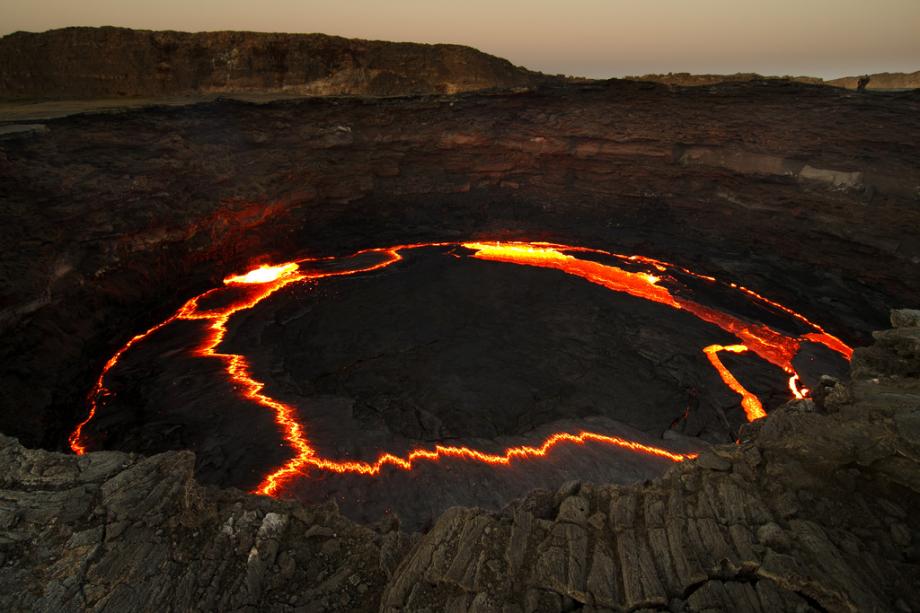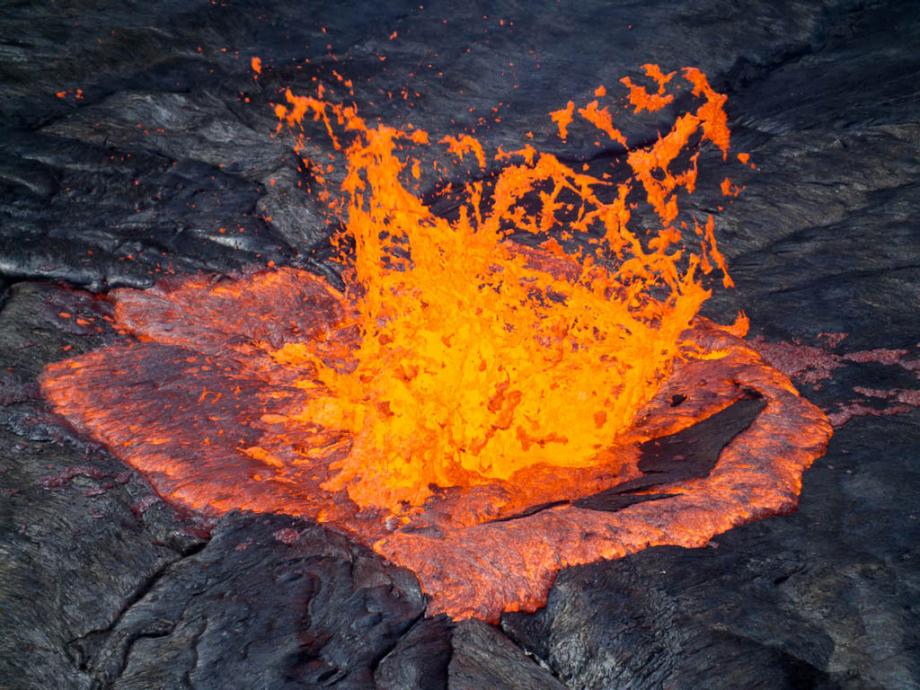The Lava Lakes of Erta Ale, Ethiopia's "Smoking Mountain"
Atlas Obscura on Slate is a new travel blog. Like us on Facebook, Tumblr, or follow us on Twitter @atlasobscura.
Located in the Danakil Depression (or Afar Depression) in the Afar Region of northeastern Ethiopia, Erta Ale is one of the driest, lowest, and hottest places on Earth. Temperatures during the year range from 77 degrees Fahrenheit to 118 degrees Fahrenheit. The area is beset by drought, bereft of trees, and has little in the way of roads.
Known by the Afar as the "smoking mountain" and "the gateway to hell," Erta Ale is a 2,011-foot-high constantly active basaltic shield volcano. It is one of only a handful of continuously active volcanos in the world, and a member of an even more exclusive group: volcanos with lava lakes. While there are only five known volcanos with lava lakes globally, Erta Ale often has two active lava lakes, making it a unique site.
Erta Ale was discovered in 1906, which also makes it the longest-known lava lake. For a lava lake to exist, the surface of the lake and the magma chamber below must form a constant convecting system, or the entire thing will cool and solidify.
Beneath the ground surrounding Erta Ale is an enormous pool of active magma. The lake goes through cycles and will cool, form a black layer on top, and then suddenly convect back into liquid lava. Occasionally, due to pressure, "fountains" of lava will form, spewing lava in 6- to 13-foot-high plumes.
The volcano itself has erupted in 1873, 1903, 1940, 1960, 1967, and 2005, when it killed hundreds of livestock and forced thousands to flee. In 2007 lava flows once again forced evacuation. Two people went missing and were presumably killed.
Despite the harsh conditions, danger of volcanic eruption, and extreme heat, Erta Ale has become something of a tourist destination recently. Whereas in 2002 the area was accessible only by helicopter, today adventure tourism groups take trips to the volcano lakes and it is now possible to drive within 4.3 miles of the volcano.
Angry volcanoes:


